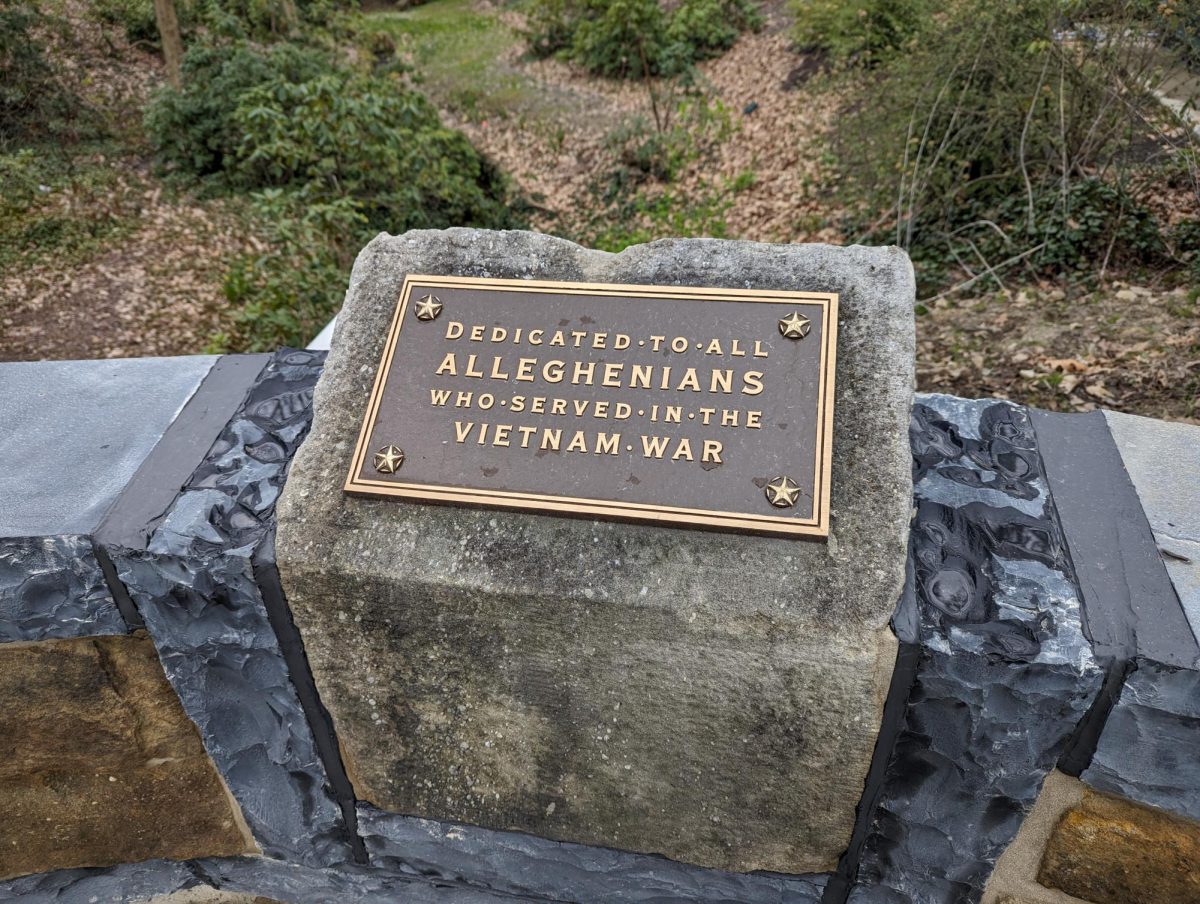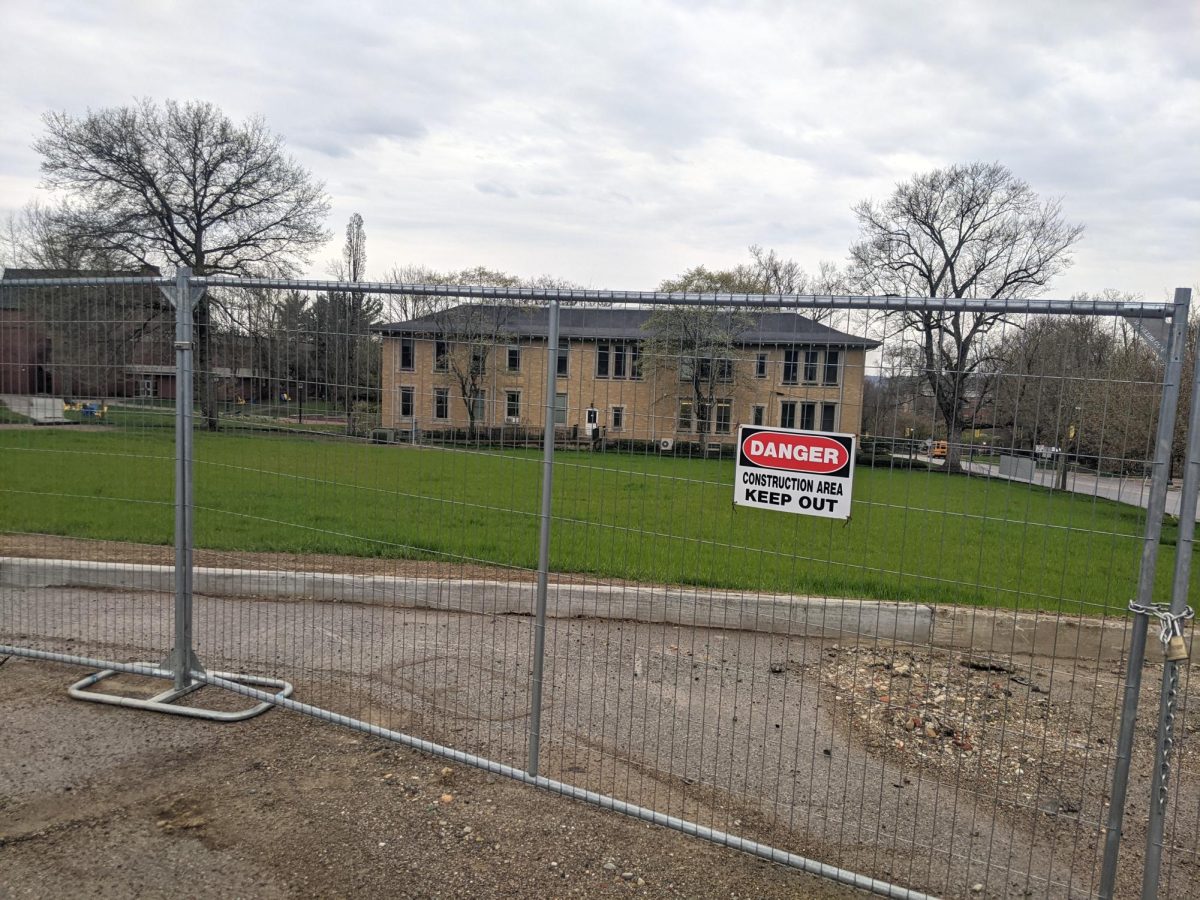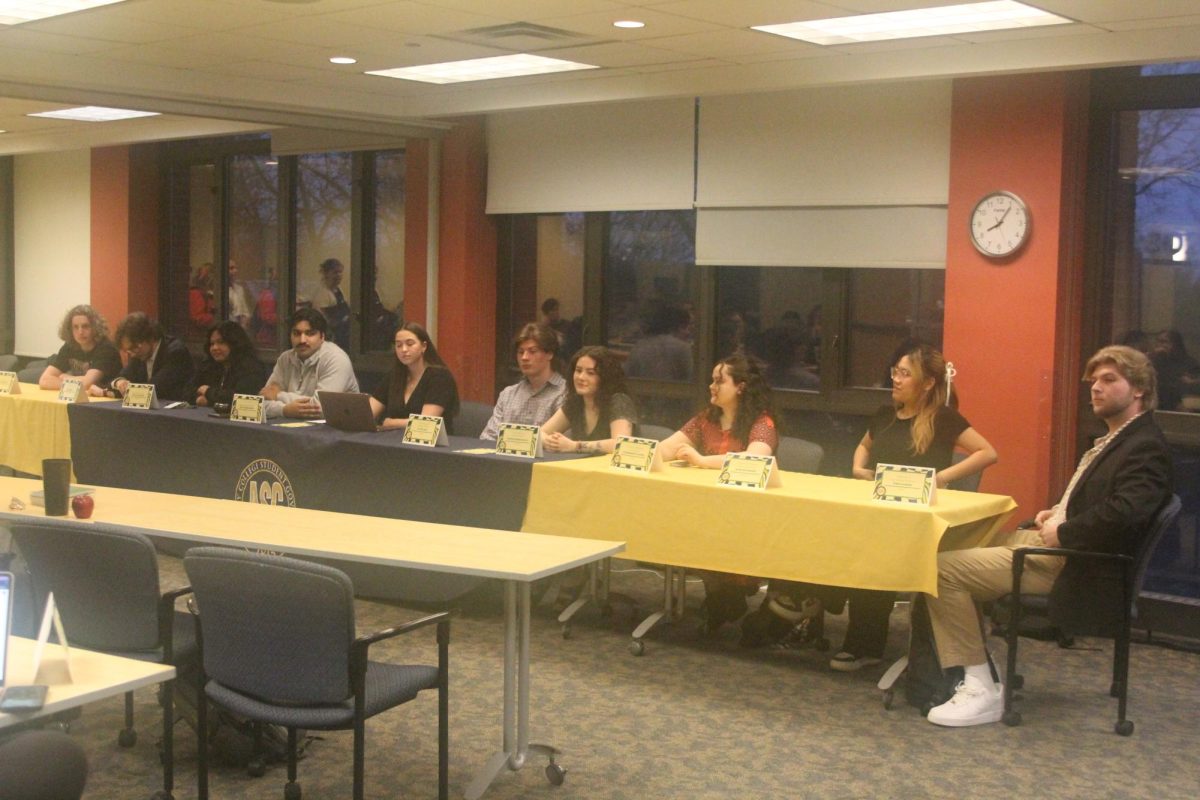In the midst of the Peace Corps celebration of 50 years of service, Allegheny students met Wednesday afternoon to hear from a group of Peace Corps nominees, former volunteers and staff.
Five Allegheny nominees, still waiting for confirmation of their acceptances, spoke on a panel for interested younger students.
If accepted into the program, these nominated students will participate in a Peace Corps term of service, consisting of three months of preparatory training in the host country and 24 months of working within a community.
“I’m looking forward to not just learning something but actually getting to do something and getting to do something for somebody else and actually apply what I’ve learned at Allegheny,” said Stephanie Gaisor,‘11.
“I think that the thing that I hope to gain most from Peace Corps is sort of an opportunity to just live my life, as crazy as that sounds,” said Shane Downing, ‘11. “It’s just that I’m not ready to continue my education. I’m not ready to get a job I don’t wanna sit behind a desk I just wanna live.”
After her time abroad, Sharon Dudek, ‘11, hopes to participate in the Fellows/USA program offered for returned volunteers to gain reduced tuition and scholarships towards furthering her education at one of the over 50 participating campuses in the country.
Peace Corps also offers a program called Master’s International, where volunteers can incorporate their service as credit in participating master’s degrees before or while they serve abroad. Some of the other benefits of becoming a volunteer for the Peace Corps are health insurance, stipends for living and for acclimation back into the United States, and loan deferment or partial cancellation.
To reap the benefits of a Peace Corps experience, volunteers must have patience for the application process. Approximately 25 percent of applicants are accepted and commit to the 9 to 12 month application process. It’s an extensive waiting game, according to volunteers who spoke, and for students, this wait creates mixed emotions.
“I think even though all 7 of us have been nominated, that doesn’t mean we’re all going to get placed, so it’s really kind of nerve wracking to know that even though we’ve all put so much time and energy into this that we could still get turned down,” Gaisor said.
Once these volunteers completed their application and interview, they were nominated to a host country and program. Some of these program nominations include environmental education in Asia, improving literacy and health in Sub-Saharan Africa, and community and youth development in Asia and Central or South America.
What makes the wait so long and intensive is the legal and medical clearance.
“After [sending those in], it’s a waiting game,” Downing said. “Hopefully in the next four months we’re all going to hear our placements but I’m not really concerned in terms of finding out.”
The Peace Corps encourages people of all backgrounds to apply for service because there is a need for various skills during service. Jonette Maureer, a recruiter out of Pittsburgh, for the Peace Corps came to share her experiences and emphasized the support that volunteers receive while abroad and the priority Peace Corps has for safety.
“Feel the fear and do it anyways,” said Michaeline Shuman, director of career services, encouraging students to give the experience a try.
Downing also agrees that the experience is one that all people should consider.
“You can do the Peace Corps any time in your life,” he said. “Like this is something that I made a decision to do after I graduate but the average peace corps volunteer in terms of age is 28, the oldest volunteer currently is over 80 so I would encourage people to always keep it open as an option.”
Five Allegheny nominees, still waiting for confirmation of their acceptances, spoke on a panel for interested younger students.
If accepted into the program, these nominated students will participate in a Peace Corps term of service, consisting of three months of preparatory training in the host country and 24 months of working within a community.
“I’m looking forward to not just learning something but actually getting to do something and getting to do something for somebody else and actually apply what I’ve learned at Allegheny,” said Stephanie Gaisor,‘11.
“I think that the thing that I hope to gain most from Peace Corps is sort of an opportunity to just live my life, as crazy as that sounds,” said Shane Downing, ‘11. “It’s just that I’m not ready to continue my education. I’m not ready to get a job I don’t wanna sit behind a desk I just wanna live.”
After her time abroad, Sharon Dudek, ‘11, hopes to participate in the Fellows/USA program offered for returned volunteers to gain reduced tuition and scholarships towards furthering her education at one of the over 50 participating campuses in the country.
Peace Corps also offers a program called Master’s International, where volunteers can incorporate their service as credit in participating master’s degrees before or while they serve abroad. Some of the other benefits of becoming a volunteer for the Peace Corps are health insurance, stipends for living and for acclimation back into the United States, and loan deferment or partial cancellation.
To reap the benefits of a Peace Corps experience, volunteers must have patience for the application process. Approximately 25 percent of applicants are accepted and commit to the 9 to 12 month application process. It’s an extensive waiting game, according to volunteers who spoke, and for students, this wait creates mixed emotions.
“I think even though all 7 of us have been nominated, that doesn’t mean we’re all going to get placed, so it’s really kind of nerve wracking to know that even though we’ve all put so much time and energy into this that we could still get turned down,” Gaisor said.
Once these volunteers completed their application and interview, they were nominated to a host country and program. Some of these program nominations include environmental education in Asia, improving literacy and health in Sub-Saharan Africa, and community and youth development in Asia and Central or South America.
What makes the wait so long and intensive is the legal and medical clearance.
“After [sending those in], it’s a waiting game,” Downing said. “Hopefully in the next four months we’re all going to hear our placements but I’m not really concerned in terms of finding out.”
The Peace Corps encourages people of all backgrounds to apply for service because there is a need for various skills during service. Jonette Maureer, a recruiter out of Pittsburgh, for the Peace Corps came to share her experiences and emphasized the support that volunteers receive while abroad and the priority Peace Corps has for safety.
“Feel the fear and do it anyways,” said Michaeline Shuman, director of career services, encouraging students to give the experience a try.
Downing also agrees that the experience is one that all people should consider.
“You can do the Peace Corps any time in your life,” he said. “Like this is something that I made a decision to do after I graduate but the average peace corps volunteer in terms of age is 28, the oldest volunteer currently is over 80 so I would encourage people to always keep it open as an option.”
Story continues below advertisement






